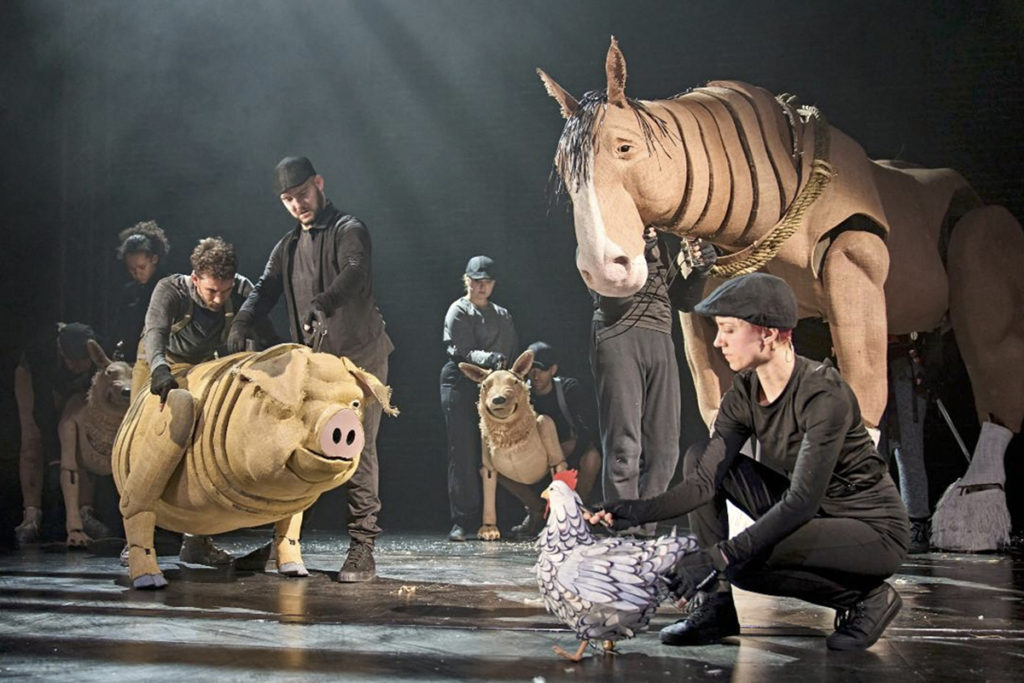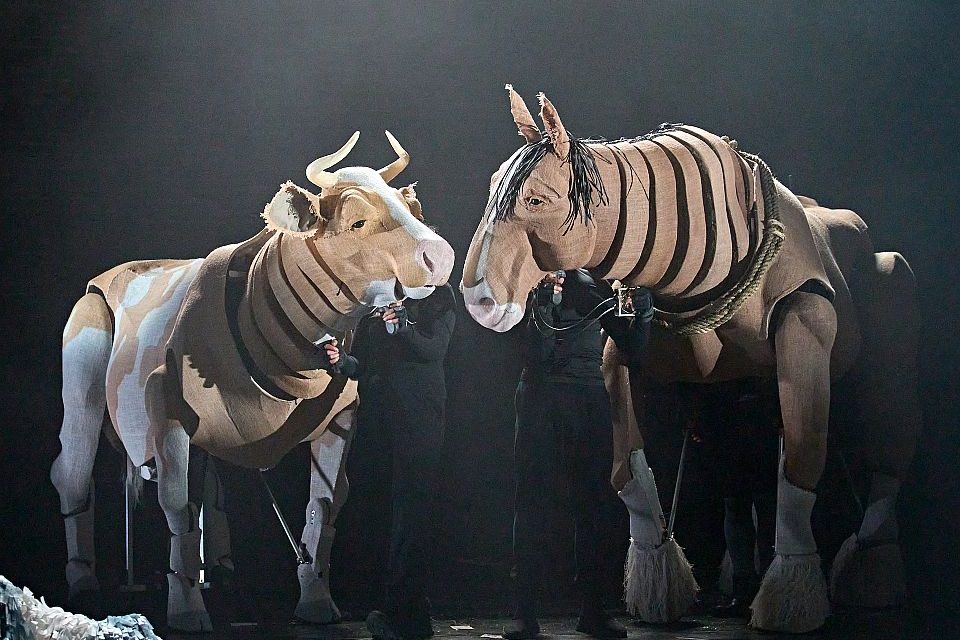
1- 5 March
‘Power tends to corrupt; absolute power corrupts absolutely’ wrote historian and politician Lord Acton (1834-1902). His observation has been interpreted to mean that the more power someone has, the more their sense of morality is weakened – tragically, all too easy to witness on Europe’s borders today. And in George Orwell’s unflinching novel, the spiral down from idealistic vision of hard-fought equality to outright despotism is littered with all the clues we should need to spot tendencies at the top which should ring alarm bells – the gaslighting of truth, closing down legitimate protest while emphasising the cult of a leader and the fear of the ‘other’. Sadly, Orwell’s tale of the animals on Manor Farm remains as relevant today as when he wrote it in 1943.
This Children’s Theatre Partnership in association with Birmingham Rep production of Animal Farm sees director Robert Icke’s first foray into puppetry on stage. What is most impressive about his work is the ‘invisible’ choreography of the puppeteers themselves – fourteen of them jostling for space alongside their life-sized animal replicas as the animal revolution pushes out incumbent farmer Jones.
As animals fly, run, chase, attack, and gather together there is a sense of a seamless homogenous sea of life evolving around the stage, including some impressive slo-mo moments, when animals seemed to be locked into split-second camera traps on Bunny Christie’s simple and darkened set, with its two sliding barn doors swinging across the front to presage change. The movement of the animals, including the use of miniature versions of themselves in chase scenes, was no less than a triumph.
Puppetry designer and director Toby Olié had 30 life-sized puppets to construct for this production – pigeons, chickens, a goose, a cat, dogs, two horses, a cow and a goat, not to mention the infamous pigs, taking almost nine months to create from scratch. As was the case with the deeply affecting War Horse, there are many moments in this production when you ceased to notice puppeteers, just ‘real’ animals keenly observed, especially under Jon Clark’s sympathetic warm lighting – particularly when the animals are thrown into high relief from side spotlights. Tom Gibbons’ music added an epic quality to the battle scenes between humans and animals.
The puppets echoed their roles well. Heavyweight would-be despot Napoleon is every bit the bull-chested bully, Squealer the quick-thinking, mendacious, king-maker. Boxer remained the gentle hard-working giant never wanting to upset the management, while Clover the cow’s fading eyesight and memory added to our sense of upset as the 7 commandments the animals set themselves are gradually changed or added to in ways that always favoured the comfort and prosperity of the dominant pigs.
While the puppetry is faultless in this production, there were a few key moments from Orwell’s original which seemed underplayed – the terrible moment when a pig appears on two legs for the first time (‘Four legs good, two legs bad’ becoming ‘Four legs good, two legs better’) seemed a little more incidental than game-changing, while the discovery by the other animals of the pigs supping alcohol and partying with the neighbouring farmers in the comfort of the farmhouse (thus breaking most of the original animal commandments) was omitted altogether. But overall, this was a powerful interpretation of Orwell’s classic tale.
★★★★☆ Simon Bishop 2nd March


